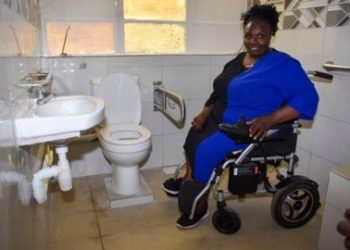By Lynn Ngatia, Communications &Pr officer CCAK
The Clean Cooking Association of Kenya (CCAK) partnered with the County Government of Kilifi’s Department of Lands, Energy, Housing, Physical Planning, and Urban Development, as well as WWF-Kenya, to introduce transformative energy initiatives to the Kilifi community through the Voices for Just Climate Action programme.
These initiatives kicked off with a dynamic workshop aimed at setting up energy clubs in various educational institutions. The event, held at Titanic Hotel Kilifi, gathered educators, government officials, and energy experts to discuss and plan the establishment of these clubs.
James Menza,Kilifi County Energy Officer, welcomed participants emphasizing the importance of energy for lighting, cooking, and heating. He reiterated importance of energy clubs saying that they are envisioned as dynamic platforms where students will delve into STEM (Science, Technology, Engineering, Mathematics) activities, learn about renewable energy, and promote clean cooking solutions using locally available materials.
“The clubs aim to empower students to drive change within their schools and communities by adopting energy-efficient practices and participating in renewable energy projects like briquette making and creating vision boards for sustainable practices.”
Wilfred Kenga Baya, the Assistant Director of Energy County Government of Kilifi, highlighted Kilifi’s significant progress in energy matters and the benefits of clean cooking solutions.
While, Chief Officer Samwel Menza reiterated the County Government’s unwavering support for enhancing access to energy, underscoring the impact of energy clubs on promoting clean energy knowledge among learners.
On her part, Philomena Mitalo, CCAK’s Ag. National Coordinator, explained the relevance of clean cooking to climate change mitigation and the challenges schools face in adopting clean cooking solutions.
Throughout the workshop, engaging presentations shed light on energy access and the concept of energy clubs in learning institutions. Representatives from various schools and vocational training centers shared insights on their existing clubs and activities. A lively plenary session addressed key issues such as operationalizing biogas systems and briquette machines in schools, solarizing learning institutions, and setting up mini energy demo centers.
The excitement continued with a visit to Katana Ngala Secondary School, where improved cookstoves were commissioned. This event marked a significant milestone in promoting clean cooking practices within the school.
The new cookstoves are expected to reduce fuel expenses, improve cooking efficiency, and create a safer environment for students and staff. By lowering exposure to harmful smoke, these cookstoves will greatly enhance the health and well-being of the school community, reducing respiratory and other health issues associated with traditional cooking methods. The school’s administration expressed heartfelt gratitude for this initiative and committed to maintaining the cookstoves for long-term benefits.
Building on this momentum, the team ventured to Bore Shungwaya in Magarini Sub-county to plant indigenous trees. This community-driven effort, supported by the Nyari Self-Help Group, saw the planting of 567 seedlings of Mwavuli (Umbrella) and Mkilifi (Neem) species.
The indigenous tree-planting initiative aims to promote the sustainable production of cooking fuels and enhance environmental conservation. By providing a reliable source of biomass for cooking, these trees contribute to long-term health benefits by ensuring cleaner air.
Bore Shungwaya community expressed their dedication to nurturing the seedlings and welcomed CCAK and CGK to monitor the progress.
The event reached a crescendo with the celebration of the International Day for the Conservation of the Mangrove Ecosystem in Uyombo village, Matsangoni.
International Day of Conservation of the Mangroove Ecosystem commemoration underscored the critical role of mangroves in coastal ecosystems, including biodiversity conservation, protection against natural disasters, and climate change mitigation.
The planting of 600 mangrove seedlings reinforced the community’s commitment to environmental conservation and sustainable livelihoods.
Media interviews with key stakeholders highlighted the importance of adopting clean cooking technologies, reducing reliance on firewood and charcoal, and promoting alternative and sustainable sources of fuel.
The collaborative efforts of CCAK, the County Government of Kilifi, and WWF-Kenya exemplify a proactive approach to addressing energy challenges and fostering a greener, more sustainable Kilifi.
It is through these sustainable energy initiatives, Kilifi County is making significant strides towards clean cooking, energy efficiency, and environmental consciousness. This collective journey marks a transformative era for Kilifi, paving the way for a sustainable and resilient future. With improved health outcomes and a commitment to environmental stewardship, the community is poised to thrive in a cleaner, greener world.















